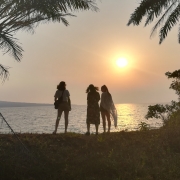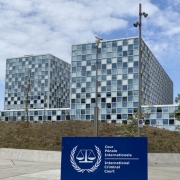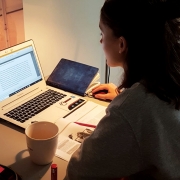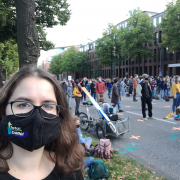Advancing the child protection system in Ghana: One-Stop-Centers for survivors of child violence
World Future Council’s consultant on child protection Ramana Shareef travels to Ghana to further advance the One-Stop-Centre model with key stakeholders. Accra/Hamburg, 12th July 2021 – For the majority of children in Ghana, violence is a terrible part of their everyday life. According to official statistics, 9 out of 10 children are exposed to mental or physical violence, and physical punishment is a common phenomenon. In most cases, limited action is taken to seek medical or psychosocial help for the victims and their families. One-Stop-Centres, however, provide essential services for survivors of abuse under one roof. To further advance and implement the model in Ghana, the World Future Council’s consultant on Child Protection, Ramana Shareef, is now travelling to Accra, Ghana, to discuss the importance of such a model with government representatives, policymakers, medical professionals, and other stakeholders and advance an inter-ministerial agreement to start implementing the pilot. Crucially, this will include discussions on how to put theory into practice. One-Stop-Centres (OSC) are central contact points for children and their families affected by violence, including sexualised violence. Here, survivors can find psycho-social support, a police office to initiate criminal investigation, as well as medical treatment including collection of forensic evidence, under one roof. Ideally, access to legal services is also part of the centre. “
The main objective of the One Stop Centre model is to play the role of an initial umbrella institution for child survivors of abuse, and to provide access to the most essential services under one roof, involving multisectoral collaboration”, says Samia Kassid, Senior Programme Manager “the Rights of Children and Youth”, World Future Council.
“Investment in the strengthening of coordination among all professions at One-Stop-Centres will eventually speed up the legal process, which may lead to an increase in the prosecution of perpetrators and awareness raising on the importance to fight (sexual) violence against children.” During an international conference on child protection, hosted by the World Future Council in Zanzibar in 2017, the One-Stop-Centre model was introduced, which inspired attending Ghanaian policy makers. In 2018 the World Future Council conducted a technical workshop in Ho/Ghana with key Ghanaian stakeholders working on child protection and representatives from the Ministry of Health, Ministry of Gender, Children and Social Protection as well Ministry of Interior. Together with experts from Zanzibar they explored during a three days’ workshop its feasibility for Ghana and agreed on a pilot roadmap to start in Accra. The One-Stop-Centre model as an intervention tool of a well-functioning child protection system is part of the Zanzibar’s Children’s Act 2011, which won the Gold Future Policy Award in 2015. For more information on the Future Policy Award 2015, please visit:
https://www.worldfuturecouncil.org/p/future-policy-award-2015

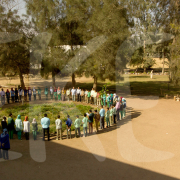


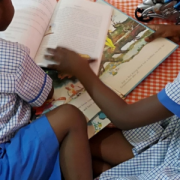

 MEDIA CONTACT Anna-Lara Stehn Media & Communications Manager
MEDIA CONTACT Anna-Lara Stehn Media & Communications Manager 